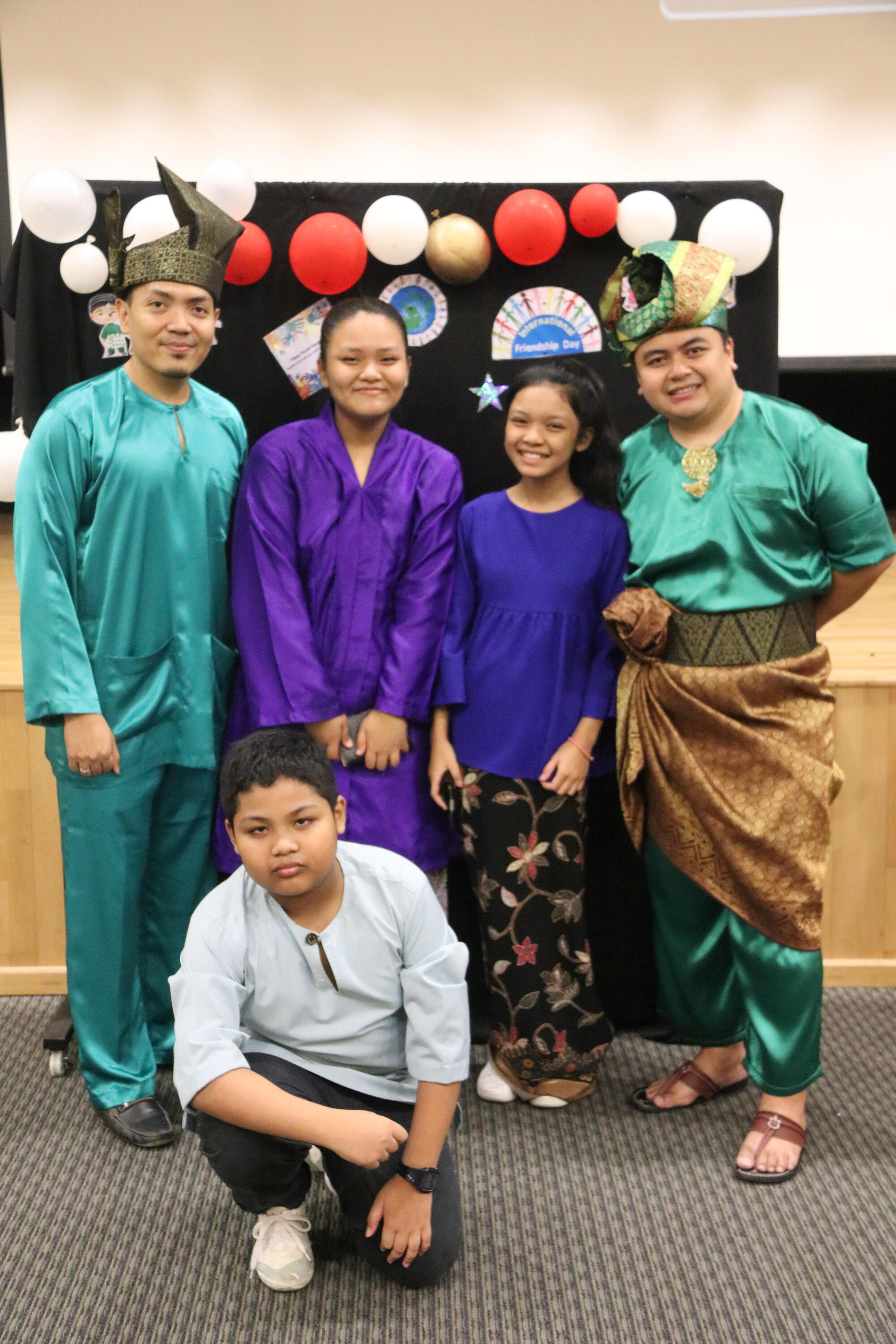What inspires you to teach?
During my teenage years, my family struggled to make ends meet, and the idea of an immersion trip to China seemed out of reach. However, my Secondary 3 Higher Chinese Language teacher and form teacher assured me that funds would be available. They applied for financial assistance on my behalf, and I was able to go.
This was not the only time I experienced unwavering support from my teachers.
When I felt overwhelmed with schoolwork, my Physical Education teacher would open the games room for me and my classmates to unwind in. Before graduation, he gave me a farewell gift – a Donald Duck magnet – and his parting words were, “You have the qualities to be a great teacher. You’re passionate about the Chinese Language and connect well with people. Go for it if you can!”
That magnet is currently stuck onto my cubicle’s whiteboard at work, serving as a reminder to provide the same level of support to my own students.
In my first year of teaching, one of my students stood out – for being disruptive during lessons, even sleeping on the floor. One day, I asked him about his future aspirations.
“I want to be a hooligan,” he said.
“Okay, so how would you achieve your goal?” I replied, trying not to look surprised.
“Start my own business and manage sidekicks,” he asserted. Curious, I inquired about school subjects he believed would be beneficial for his venture. To my delight, he mentioned the importance of conversational English, fundamental Maths skills, and gaining an understanding of business operations. This led us to an engaging discussion on the various subjects that would directly support his aspirations, with some light-hearted jokes thrown in.
Despite the seemingly absurd nature of the conversation, it helped build a connection between us. After this, I began to work with his form teacher to find out more about his family background. It was then that I realised he worked at his mother’s food stall and performed in a lion dance troupe to bring in more money. His dedication to hard work was evident, and I was determined to instil this admirable quality into his learning. I looked for opportunities to praise him when he spoke Mandarin well and whenever he was polite too. I think he could gradually see the relevance of learning to his life, and that he could be a better version of himself if he tried. He is now more engaged in class, even going the extra mile to assist his weaker classmates.
Describe a teaching approach you have found effective.
When it comes to learning the Chinese language, why focus on just Chinese classics and history? By applying the language in our local context, students cultivate an appreciation for both the language and Singapore’s rich culture.
“Does anyone know which area is named after Chinese pioneer Lim Nee Soon?” I asked in one of my lessons. When the students could not guess that it was Yishun (“How is ‘Yishun’ and ‘Nee Soon’ the same? They sound so different!”), I explained that ‘Nee Soon’ was how we would pronounce ‘Yishun’ in dialect. We discussed the linguistic nuances within Singapore’s Chinese community, as well as the contributions made to the Yishun district by Mr Lim, a rubber and pineapple plantation owner.
“By applying the language in our local context, students cultivate an appreciation for both the language and Singapore’s rich culture.”
I then assigned the class research tasks. Each group had to explore local food such as ‘bak kut teh’, places such as Haw Par Villa, and festivals, like the Mid-Autumn Festival. When it came time to decide the presentation order, one group asked, “Can we go first?”
I was thrilled. Students were excited as they saw the language come alive in their daily lives.
Which school initiative are you especially proud of?
Lighthouse, our school’s GEAR-UP Programme for the students, stands out as one of my most fulfilling accomplishments. My team and I, together with our students whom we call “lighthouse keepers”, run fun activities after school, and make it a safe space for the students to grow, learn, fail and make mistakes.
.jpg)
A significant focus of my work involves student training and development, as well as nurturing their self-esteem.
I feel a glow as I see the ‘lighthouse keepers’ warmly greet fellow schoolmates to the Lighthouse room, maintain cleanliness there, and ensure safety during events such as graduation parties.
“My goal is to instil such values in my students, so that they too can become agents of positive change, who will be acknowledged for their character beyond their academic accomplishments.”
I recall being impressed by one of the ‘lighthouse keepers’, who would volunteer to stand in for his team members when they were unable to show up for their roles.
“Don’t worry Ms Lim,” he’d say to me, “I’ve registered the visitors, packed the room, and switched off all the lights and fans.”
In time, not only did his schoolwork improve, but he also developed a sense of purpose. He once told me, “Thank you for believing in me and letting me do this.”
A photo shared by a former colleague captured a diverse group of people working together to right an overturned car. By looking at the photo, one cannot discern the educational background or social status of the individuals, but their willingness to support one another.
My goal is to instil such values in my students, so that they too can become agents of positive change, who will be acknowledged for their character beyond their academic accomplishments.



.jpg)


